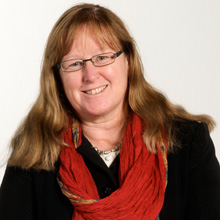A GHWY partnership approach to support underrepresented groups of students?

Martell Baines, Progression Manager at Leeds Arts University, discusses an ambitious project involving the GHWY partners through the Access and Participation Strategy Group (APSG).
For the academic year 2020- 21 I have had the privilege to act as the Chair of the group with Claire Pryke, Associate Director Outreach, Recruitment and Admissions, University of Bradford acting as the Vice Chair. She will be continuing as the 2021-22 Chair and a new Vice Chair will be elected for the year.
The Office for Students (OfS. 2021) reports that there are gaps not only in access, but in participation, continuation and degree classifications awarded between the most and least represented groups of students. As the regulatory organisation for HE, OfS sets challenging and ambitious targets and outcomes through each HE institution’s Access and Participation Plans.
The 13 HE providers, who are all different in scale, mission, courses offered and specialisms are to develop a five-year plan of action together. This will reach out to support those students who are the least represented in our student populations and this will be developed within a strategic framework. We are working collaboratively towards creating an enhanced environment and support for all students, but particularly with those groups who are underrepresented in HE populations in mind.
To set the scene from which to move forwards, the partnership has to first understand the context of current provision that it is moving on from. Consequently stage 1 of the scheme is to scope what support and information is available, what practice, expertise and research currently exists and where are the gaps in knowledge.
As part of this mapping, a survey has been sent out to each partner, to gain an insight into the current provision of support for students who are in underrepresented groups. The survey questions challenge the HE partners to reflect upon all areas of their students’ experience. The questions raised are: Where are we as a partnership now? In what areas do we intend to develop? How will we, as GHWY collaboratively address provision for these groups of students?
The next step will be to create a series of working groups with objectives related to the specific groups. These will consider the research and evidence available to understand the under-represented groups, establish clear definitions, gain the student voice through advisory panels, share examples of good practice, discuss data and monitoring, look to provide clear communication of support and signposting, develop outreach resources, identify staff training opportunities, have role models in place and engage with specialist community organisations.
There is the challenge to identify and support individual students as they progress into HE, so working in close communication with the schools and colleges must also be key. There are indicators that can be made in the process of applying to E, such as the UCAS tick box of a category of a disability or care experienced status, but some students choose not to declare information about their context. Some of the under-represented groups have strong and established advocacy and campaigns, examples of these are the matrix of support for care experienced students through the ‘Care Leavers Covenant’, estranged students with the ‘Stand Alone pledge’, and the Service Children’s Progression Alliance with advocacy for children of military families.
This ambitious and challenging project by the GHWY APSG is designed to run until 2025 which coincides with the duration of the current approved Access and Participation Plans. The initial questionnaire will establish the provision that exists and what actions are intended to address current knowledge and support. Working groups of GHWY partners will gather to establish the needs of each underrepresented group as research informed evidence and then the serious work will begin to implement a series of actions in order to make a difference.
The GHWY APSG looks forward to reporting to you on the progress of under-represented groups development across the partnership.
Biography: Martell Baines is Progression Manager at Leeds Arts University and the current Chair of the GHWY Access and Participation Strategy Group (2020-21). Her PhD practitioner research is an exploration of the critical incidents and influences gained through Arts students narratives to inform pedagogic practice in widening participation. Her research is supported by the Education and Training Foundation (ETF) Leeds Arts University and SUNCETT (Sunderland Centre of Excellence in Teacher Training) Faculty of Education and Society.
References:
Office for Students (2021) The Challenge
GHWY (2020) OfS highlights Care to Go Higher Programme
Stand Alone. (2021) The Stand Alone Pledge
Service Children’s Progression ALLIANCE
